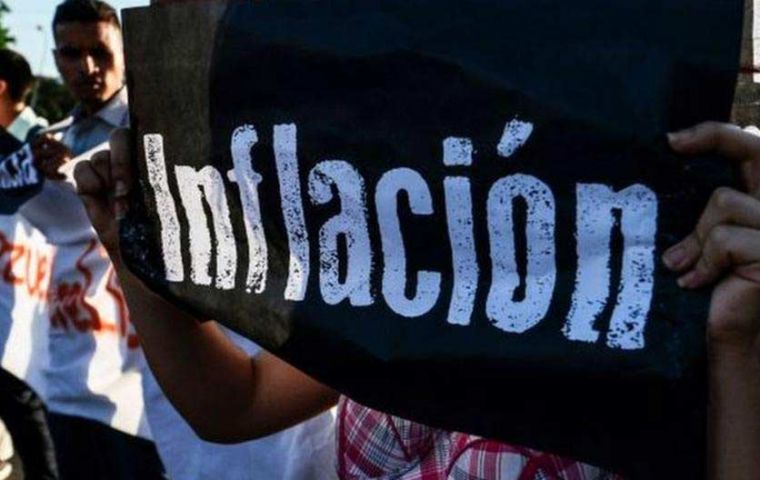
WASHINGTON, April 17 (NNN-MERCOPRESS) — The International Monetary Fund (IMF) reported that inflation in Latin America’s leading economies has reached its highest levels in 15 years. The finance agency reported that these results were the consequence of the “impact on the pandemic and the war between Russia and Ukraine.”
“Inflation in Latin America’s major economies is at the highest level in 15 years, after suffering two major shocks: the impact of the pandemic and the war between Russia and Ukraine,” the IMF said in a report from its Western Hemisphere Department.
Inflation in Brazil, Chile, Colombia, Mexico, and Peru “accelerated during 2021” due to the rise in food and energy prices, the “inertia” in monetary policies, and a “strong recovery in demand” after the coronavirus crisis, which initially covered goods and then spread to services.
The IMF also pointed out that the war between Russia and Ukraine produced an “exacerbation of inflationary pressures.” According to the Fund’s calculations, an increase of 10 points in international oil prices would produce an equivalent increase of 0.2% in inflation in these countries, while an increase in the same range in the case of food would result in 0.9% more inflation.
The organization also warned that the inflationary phenomenon, in addition to having an impact on the macroeconomy, is “regressive” given that food and energy represent a higher percentage of the baskets of lower-income households, which were previously the ones that suffered the most from the pandemic.
The IMF also found that, unlike in the rest of the world, in Latin America “there is a greater role” for factors such as “commodity prices and imports.” In countries such as the United States, in 2021 prices were driven upwards by the rebound in demand, boosted, in many cases, by fiscal stimulus measures.
To curb inflation, the region’s central banks began to raise their benchmark rates, ending 2021 with 1.75% to 9.75% cumulative rate hikes.
In this scenario, IMF economists recommended that the region’s central banks “remain alert” and “continue to take decisive action, if necessary”.
According to each country’s measuring bureau, accumulated inflation in the last twelve months was 284.4% in Venezuela, 55.1% in Argentina, 11.30% in Brazil, 10.1% in Paraguay, 9.4% in Chile, 9.38% in Uruguay, 8.53% in Colombia, 7.45% in Mexico and 6.82% in Peru, with food, fuel and transport costs accounting for the bulk of it.
IMF Managing Director Kristalina Georgieva warned that “for the first time in many years, inflation has become a threat to many countries around the world” and “represents a major setback for the global recovery.”
“Food and energy prices, along with problems in supply chains, continue to put pressure on inflation; and in advanced countries, it is reaching a four-decade high,” she added.
Georgieva also feared inflationary expectations “may become unanchored” which could “make it difficult to contain.” — NNN-MERCOPRESS
